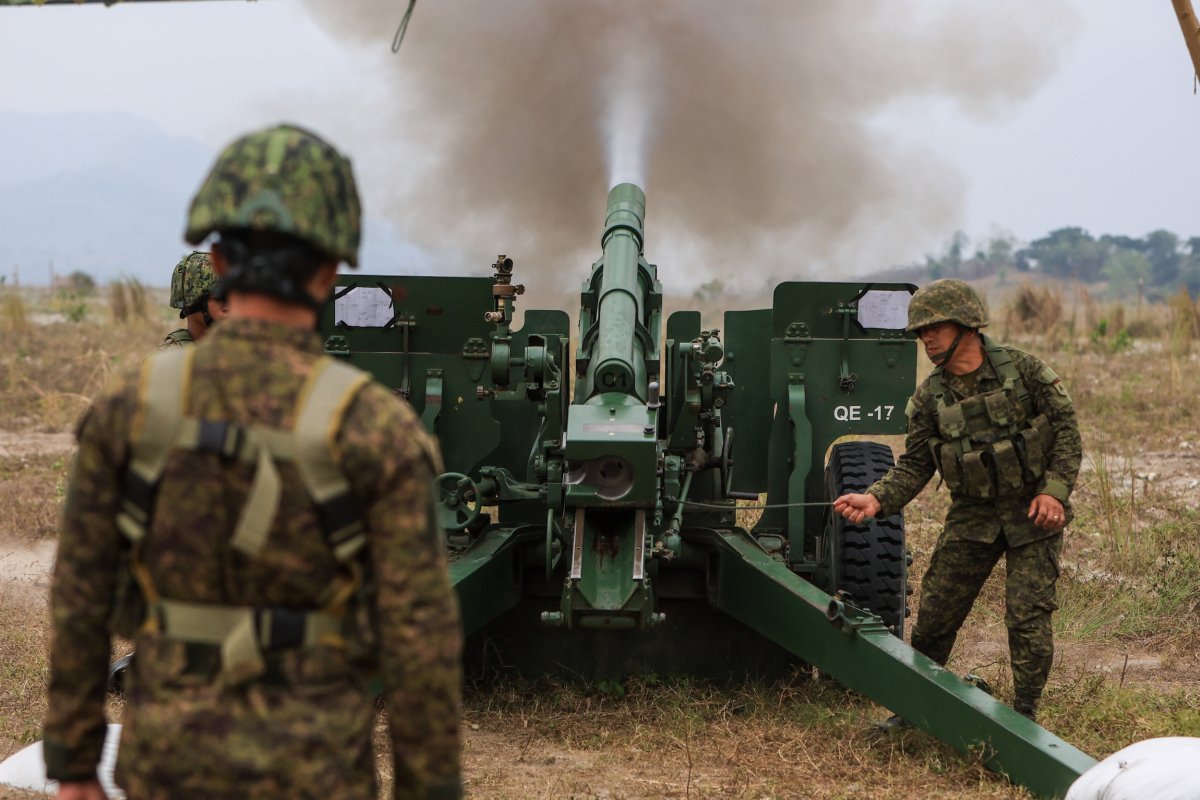More than 16,000 troops will take part in the U.S.'s largest military exercise with the Philippines as tensions simmer between the U.S. ally and neighboring China.
The 39th edition of Balikatan, or "shoulder to shoulder" in Tagalog, kicked off on Monday and will be held around Palawan and Batanes, two Philippine provinces near South China Sea hotspots and China-claimed Taiwan.
Under the administration of President Ferdinand Marcos Jr., who took office in 2022, Manila has been pushing back against and publicizing China's increasingly muscular presence within the Philippines' internationally recognized exclusive economic zone.
Balikatan is "a cornerstone event between the U.S. and the Philippines, directly supporting the refinement and understanding of our shared Mutual Defense Treaty obligations," Lt. Col. Brian Block, a U.S. Marine Corps spokesperson, told Newsweek.

The 2024 iteration is not only the largest but the most complex. Block said the field training will involve exercises related to "seizing maritime terrain, HIMARS infiltrations, and coastal defense and maritime strike operations among others."
For the first time, the exercise will also feature cyber training.
Block said the exercise is "not related to any specific contingency or concern."
The event will also feature the sinking of the BRP Lake Caliraya, a decommissioned tanker and the Philippine Navy's sole Chinese-made asset.
Last week, the U.S. deployed a medium-range missile launcher in the Philippines for a separate exercise that U.S. Army Pacific commander Gen. Charles Flynn said was to "deter present and future challenges in the region."
It was the first time the platform had made an appearance in the Philippines, putting parts of China's coastline and Chinese artificial islands in the South Sea within potential reach.
Chinese Foreign Ministry spokesperson Lin Jian responded that China opposes the U.S. placing the weapons system "at China's doorstep." He also warned the Philippines there would be "serious consequences of pandering to the United States."
On Sunday, the day before Balikatan began, Stanford University-affiliated SeaLight initiative published data to X showing two vessels belonging to China's paramilitary Maritime Militia just beyond Palawan's 24-nautical-mile (27 miles) contiguous zone.
"Very odd behavior. Perhaps intended to send a message at the beginning of the Balikatan exercise?" wrote SeaLight Director Ray Powell. The contiguous zone is a 12 nautical-mile buffer bordering a country's territorial waters.
The Chinese embassy in the U.S. did not immediately respond to a written request for comment.
The Balikatan drills will run until May 10. This year, 14 countries have sent observers. A smaller number of Australian defense forces are taking part as is—for the first time—the French navy.
The exercise coincides with an annual international defense summit China is hosting in Qingdao, Shandong Province. Delegations from 29 countries, including the U.S., are attending.
China claims sovereignty over most of the South China Sea, through which over 20 percent of international trade is estimated to pass each year. In recent months, China's coast guard has stepped up its use of non-lethal force to challenge the Philippines, which on two occasions last month resulted in boat damage and multiple Philippine injuries.
The Philippines is part of the so-called first island chain, a series of archipelagos stretching southward from Japan that the U.S. views as critical to preventing a potential Chinese invasion of Taiwan and preventing the People's Liberation Army from entering the Western Pacific.
President Joe Biden hosted Marcos and Japanese Prime Minister Fumio Kishida in a first-ever summit for the three countries. The South China Sea situation featured prominently in the talks.
In a one-on-one meeting with his Philippine counterpart, Biden reaffirmed the 1951 U.S.-Philippines defense treaty covered the entire Pacific region, including the South China Sea.
Uncommon Knowledge
Newsweek is committed to challenging conventional wisdom and finding connections in the search for common ground.
Newsweek is committed to challenging conventional wisdom and finding connections in the search for common ground.
About the writer
Micah McCartney is a reporter for Newsweek based in Taipei, Taiwan. He covers U.S.-China relations, East Asian and Southeast Asian ... Read more
To read how Newsweek uses AI as a newsroom tool, Click here.








